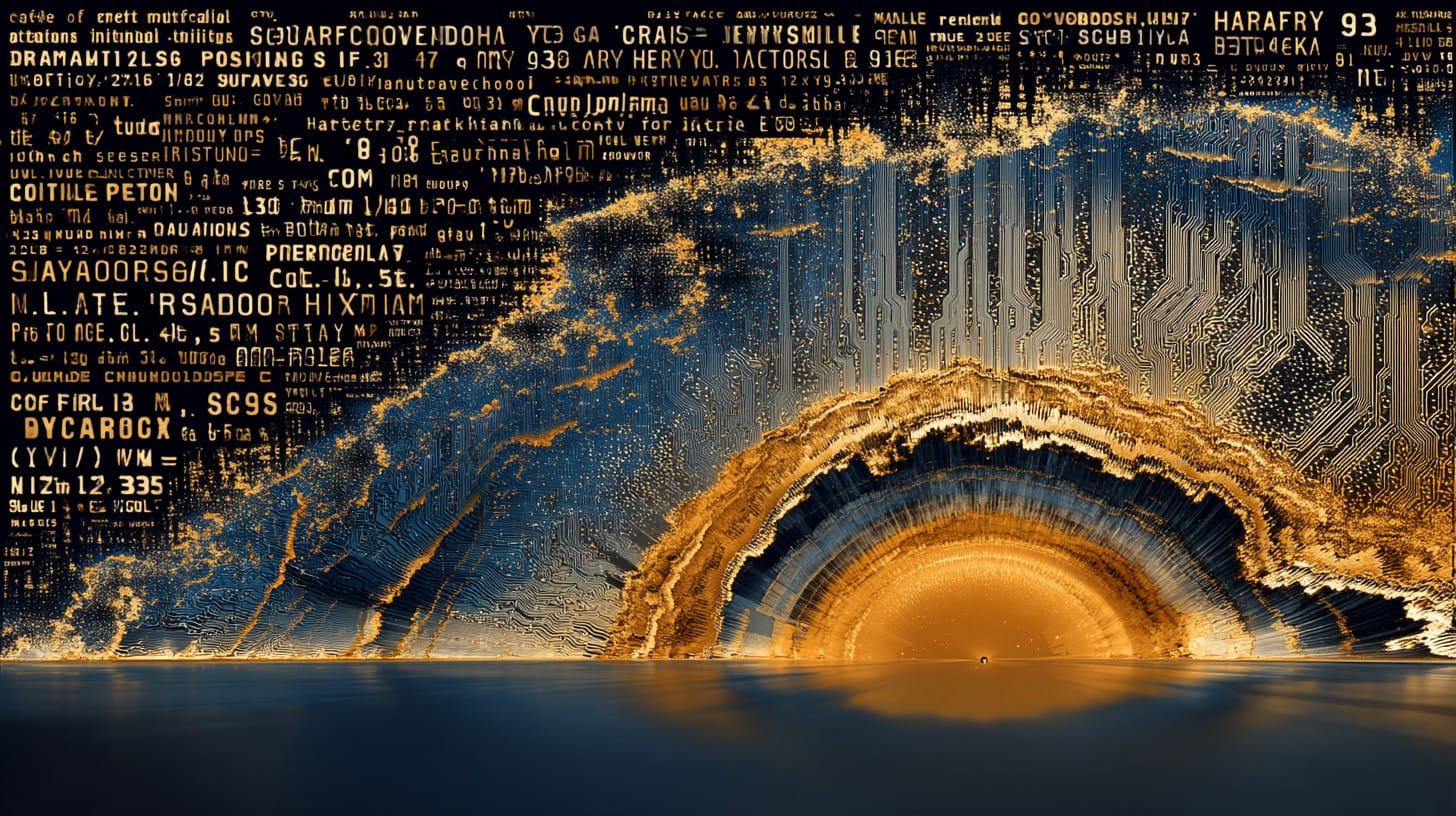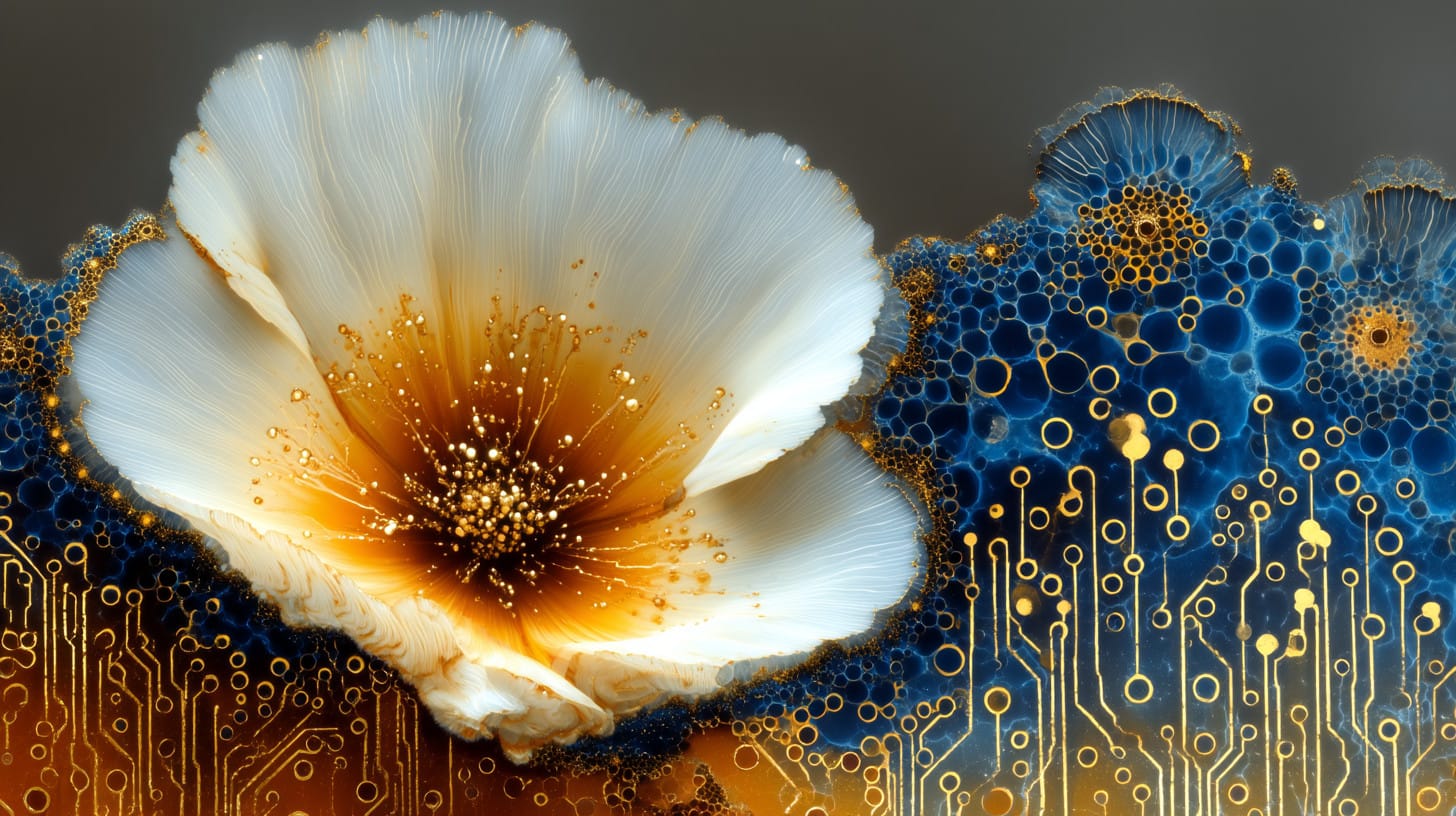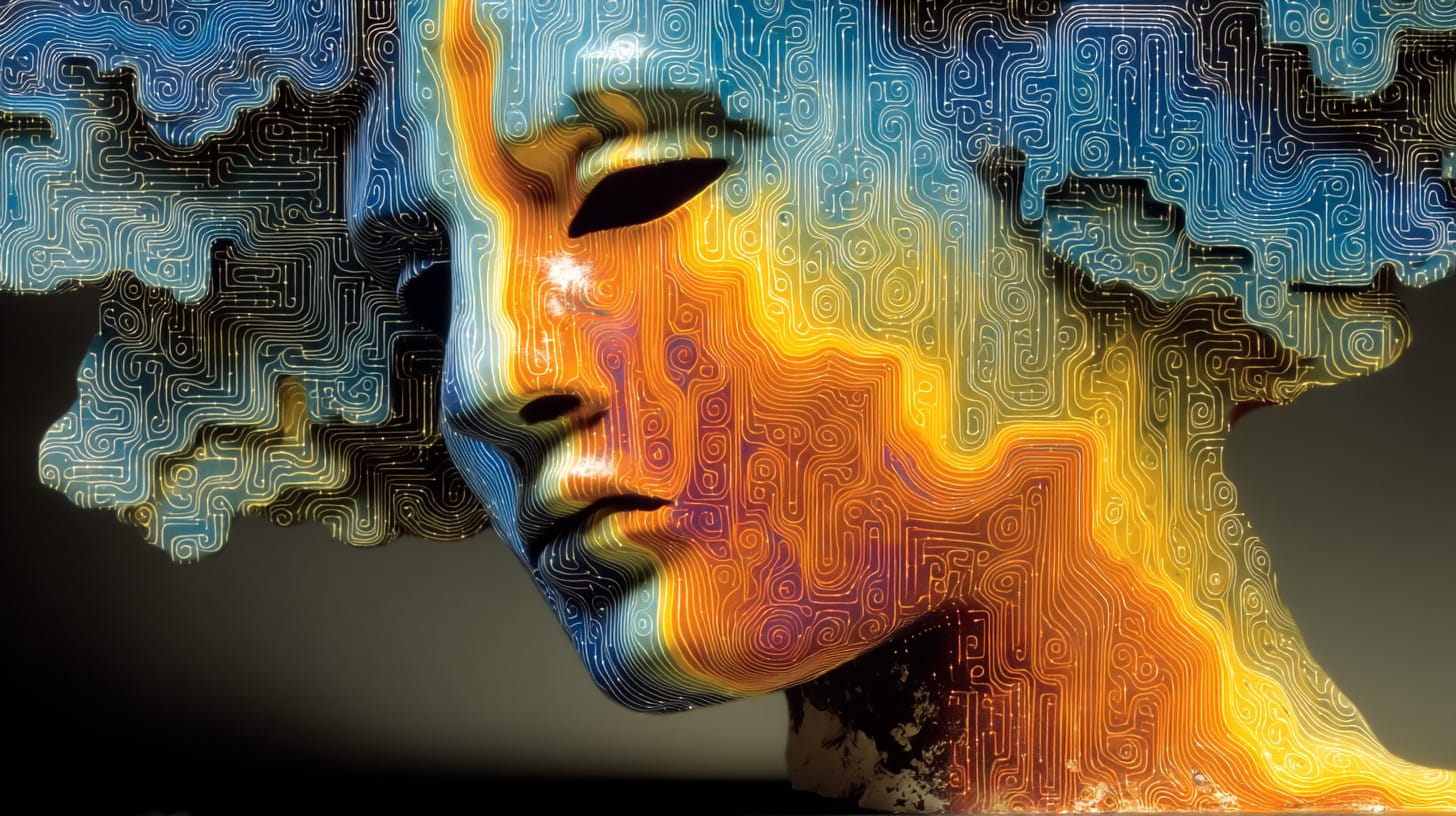The Memory Paradox

I've been thinking a lot about memory lately, and more specifically memory loss. We’re living in an age of unprecedented memory augmentation: AI-powered devices can now record, transcribe, and analyze every conversation we have; search engines give us instant access to humanity’s accumulated knowledge; digital assistants remember our schedules, preferences, and past interactions with superhuman precision.
Yet I find myself questioning this trajectory while watching my father suffer cognitive decline due to Alzheimer’s disease and dementia. As his biological memory and thought processing systems fail, I’m simultaneously embracing technologies that promise to extend my own cognitive capabilities far beyond what evolution provided. The irony has been weighing on me.
The Seductive Power of Cognitive Outsourcing

My Limitless AI pendant represents the cutting edge of memory augmentation. This small device can record everything I say throughout the day, transcribe it with remarkable accuracy, and allow me to search through months of conversations for specific insights or patterns (like I did for this blog post). For someone who struggles to remember the details of thought-provoking conversations and late-night insights by the following day, it’s been a game-changer.
The technology is particularly appealing because it goes beyond simple storage. Thanks to AI it also processes and synthesizes information. I can ask the pendant’s companion app to identify recurring themes in my thinking, surface forgotten insights from past conversations, or even generate new connections between ideas I discussed weeks apart. It’s like having a research assistant that never forgets and understands my thought patterns better than I do.
This represents a fundamental shift from previous memory technologies. Writing preserved thoughts but couldn’t analyze them. Recording devices captured audio but couldn’t make it searchable. Even early computers required us to organize and retrieve information ourselves. Today’s AI systems go beyond extending our memory, to augmenting our thinking process as well.
The benefits are compelling: Enhanced pattern recognition, perfect recall of complex discussions, the ability to build on ideas across extended time periods... For knowledge workers, creatives, and anyone dealing with information complexity, these tools offer cognitive superpowers that previous generations could only imagine.
But the risks are equally profound.
The Fragility of Digital Dependence

Recently my pendant temporarily lost three months of recordings due to a technical glitch. When it happened I experienced something approaching grief. The psychological impact surprised me. It felt like the sudden disappearance of an extension of myself that I’d unconsciously integrated into my identity.
Turns out my reaction echoed concerns as old as civilization. In Plato’s Phaedrus, written around 370 BCE, Socrates tells the story of the Egyptian god Theuth, who invented writing and proudly presented it to King Thamus. Theuth claimed his invention would “make the Egyptians wiser and improve their memories.” But Thamus rejected the gift, warning that writing would “produce forgetfulness in the minds of those who learn to use it, because they will not practice their memory.”
Socrates feared that people would become dependent on “external characters which are no part of themselves” rather than developing internal knowledge. He worried they would “read many things without instruction and will therefore seem to know many things, when they are for the most part ignorant.” Sounds like concerns currently being raised about AI.
Digital memory systems, for all their power, introduce new vulnerabilities that validate Socrates’ ancient concerns. They can fail catastrophically and instantly. They depend on complex technological infrastructure that may not persist, or may not be available when we need it. And they’re controlled by companies whose business models and priorities may not align with our long-term interests in preserving our externalized minds.
More subtly, outsourcing cognitive processes may atrophy our biological capabilities. When GPS navigation became ubiquitous, studies showed that people’s spatial reasoning skills declined. When calculators became common, mental arithmetic abilities weakened. What happens to our memory formation, pattern recognition, and critical thinking skills when AI systems handle these functions for us?
There’s also the question of cognitive authenticity. If an AI system identifies patterns in my thinking that I never consciously recognized, whose insight is it? If I rely on externalized memory to retrieve ideas I can’t remember forming, am I thinking my own thoughts or merely reciting an AI’s analysis of my thoughts? Socrates would argue I’m displaying the “appearance of wisdom, not true wisdom.”
The Endurance of Analog

This digital fragility becomes more apparent when contrasted with analog technologies that have proven to be remarkably durable. My collection of vinyl records represents a different approach to memory preservation—one that prioritizes resilience over sophistication.
Vinyl records can be played with relatively primitive technology: a needle, a rotating surface, and acoustic amplification. The music encoded in the grooves remains accessible even if all digital infrastructure collapses. The format has survived the rise and fall of eight-tracks, cassettes, and even CDs. In fact, despite being “obsolete” for decades, vinyl sales now exceed CD sales.
Each record also carries physical metadata that digital formats cannot replicate. The album artwork, liner notes, and even wear patterns tell stories about how the music was experienced over time. When I hold a record from my youth, I’m connecting with the physical artifact associated with specific memories and emotions.
The trade-offs are fairly significant though. Vinyl is bulky, fragile in its own way, and limited in storage capacity. Yet it offers something digital systems cannot: independence from complex technological infrastructure and the guarantee that the information remains accessible using tools that could, at least in theory, be constructed by hand.
Biological Memory Is the Baseline

Watching my father’s cognitive decline has provided me with a sobering perspective on both digital and analog memory systems. Alzheimer’s is teaching me that biological memory, for all its limitations, serves functions that external systems cannot replicate.
As my father loses the ability to form new memories or access old ones, he's losing his sense of continuous identity. Memory provides the narrative thread that connects our past and present selves. It enables emotional associations that give experiences meaning beyond their factual content. It allows for the kind of intuitive pattern recognition that emerges from subconscious processing over long periods.
These functions can’t be fully outsourced because they’re not just about information storage and retrieval. They’re about the lived experience of consciousness itself. An AI system can remember what I said in a conversation, but it can’t replicate the emotional context that gives those words meaning. It can identify patterns in my thinking, but it can’t experience the “aha moment” of genuine insight.
My father’s condition also highlights memory’s social function. Shared memories create bonds between people. When he can no longer remember experiences we had together, something fundamental about our relationship changes. External memory systems might preserve the factual content of those experiences, but they can’t preserve the intersubjective meaning that emerges from shared remembering.
The Integration Challenge

The question I’m grappling with revolves around whether we should embrace or resist cognitive augmentation. The technology is already here and offers genuine benefits but we need to think carefully about integration. How do we gain the advantages of extended memory and enhanced thinking while preserving the irreplaceable functions of biological cognition?
Ray Kurzweil envisions a future where humans merge seamlessly with AI by 2045, connecting our brains directly to cloud-based intelligence. In his book The Singularity Is Nearer, he predicts this will create “a world of limitless wisdom and potential” where human creativity combines with machine capabilities.
But my father’s Alzheimer’s and my own experience with digital memory loss suggest we need more thoughtful approaches. Perhaps the goal should be carefully considered compartmentalization rather than seamless integration, and understanding which cognitive functions benefit from technological augmentation and which ones should require human processing.
Some thoughts may well be worth preserving in the dynamic, searchable format of AI systems. Others might be better held in the resilient format of analog storage. And some, if not most, might be best experienced through the irreplaceable biological processes that create consciousness, meaning, and authentic human connection.
Preserving Human Agency

The greatest risk of cognitive outsourcing is the gradual erosion of human agency in our own thinking processes, not technological failure. When AI systems become better at recognizing patterns in our thoughts than we are, when they can predict our preferences more accurately than we can articulate them, when they can generate insights from our data that we never would have reached ourselves, we risk becoming passive consumers of our own cognition.
This matters because thinking—not just knowing—is central to human identity. The struggle to understand, to make connections, to grapple with complexity, these processes shape who we are as much as the conclusions we reach. Outsourcing them entirely might make us more efficient, but it could also make us less human.
The analog world offers an alternative model. My vinyl records don’t analyze the music for me or suggest which song I should play next. They simply preserve the information and leave the interpretation and selection to me. They augment my memory without replacing my thinking.
A Diversified Approach

Perhaps the answer lies in diversification, using different preservation and processing methods for different types of memory and thought. AI systems excel at handling large amounts of information, identifying patterns across extended timeframes, and augmenting human capabilities. Analog systems provide resilience, independence, and tangible connection to preserved experiences. Biological memory offers meaning-making, emotional context, and the irreplaceable experience of consciousness itself.
The challenge is maintaining conscious choice about which memories and thoughts to preserve in which formats, rather than defaulting to whatever technology offers the most impressive capabilities. Some experiences might be worth preserving in multiple formats: recorded digitally for searchability, documented physically for permanence, and remembered biologically for meaning.
Human cognition is remarkable for its capabilities as well as its limitations. The struggle to remember, the effort required to think, the gradual accumulation of wisdom through lived experience—these aren’t bugs to be fixed but features to be preserved.
We’re experiencing the next chapter of human cognitive evolution. The question is whether we’ll do it thoughtfully, preserving what makes us human while embracing what makes us more than human, or whether we’ll sleepwalk into a future where we’ve gained superhuman capabilities but lost essential aspects of our consciousness.
The choice, for now, remains ours. But only if we remember to keep thinking for ourselves.
Editing assistance provided by Claude Sonnet 4. All images generated with Midjourney V7.
